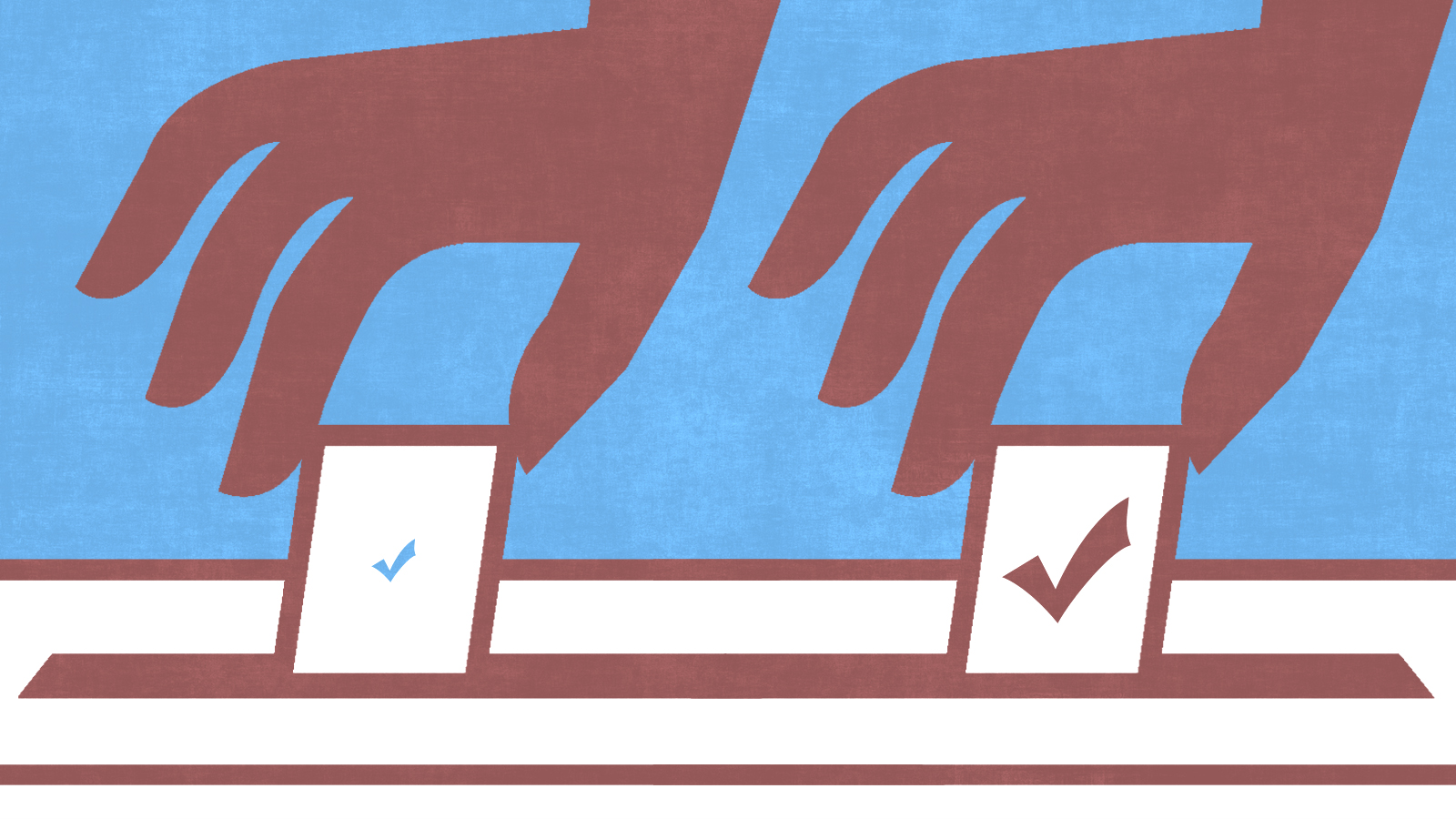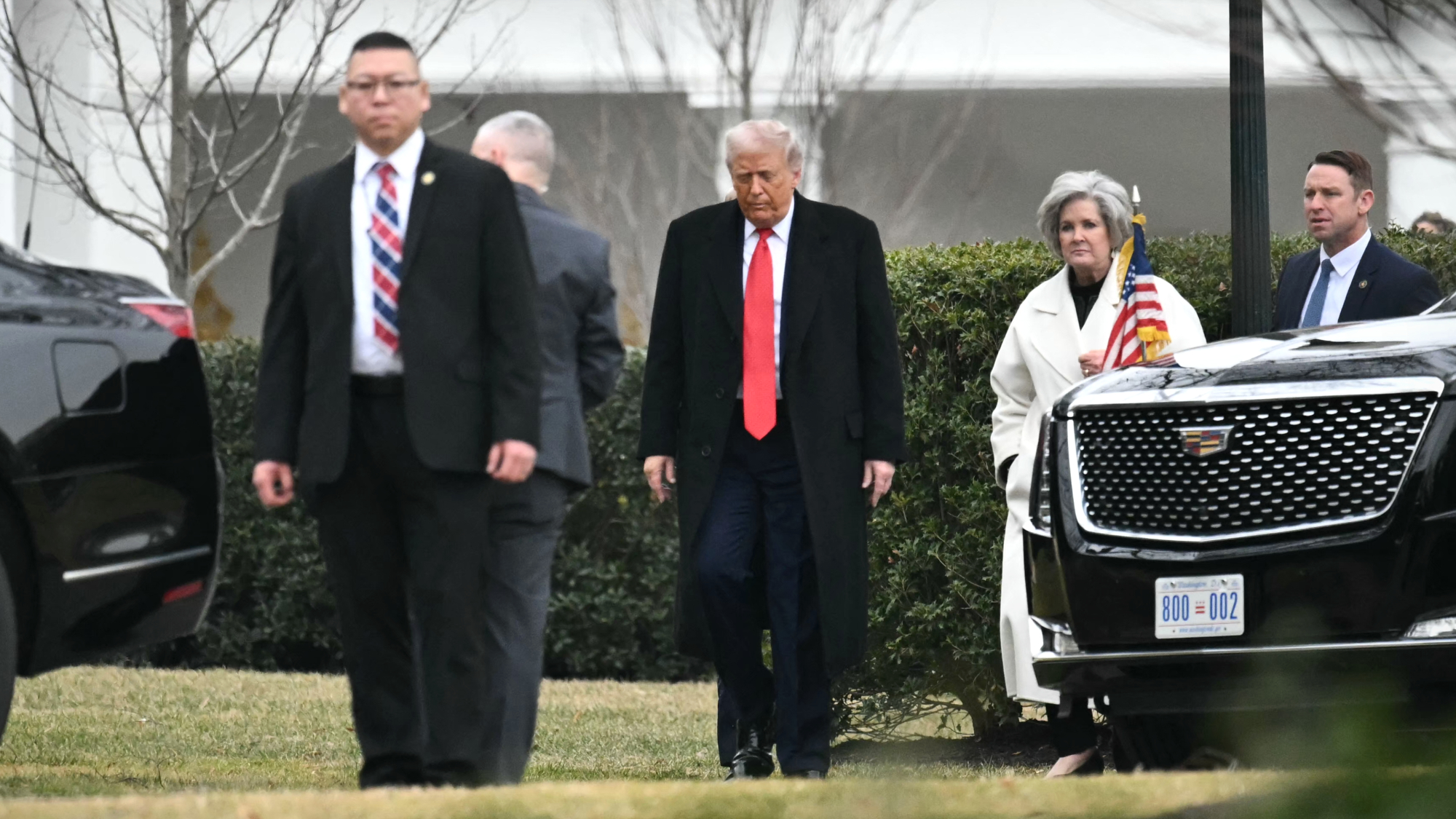Should parents' votes count more?
Unpacking J.D. Vance's attack on the "childless left"


A free daily email with the biggest news stories of the day – and the best features from TheWeek.com
You are now subscribed
Your newsletter sign-up was successful
J.D. Vance has endured a tough start to his campaign for the open U.S. Senate seat in Ohio, so maybe it's no surprise that he's borrowing a time-tested Republican tactic and doubling down on cultural warfare. During a gathering of conservatives on Friday, the onetime Hillbilly Elegy author blasted the "childless left" — citing by name Democratic politicians including Vice President Kamala Harris, Transportation Secretary Pete Buttigieg, Rep. Alexandria Ocasio-Cortez (D-N.Y.), and Sen. Cory Booker (D-N.J.).
"Why is this just a normal fact of American life, that the leaders of our country should be people who don't have a personal indirect stake in it via their own offspring, via their own children and grandchildren?" Vance asked, rhetorically. (Harris, for what it's worth, has two stepchildren with her husband, Doug Emhoff.)
Better, he suggested, to give extra voting power to America's parents.
The Week
Escape your echo chamber. Get the facts behind the news, plus analysis from multiple perspectives.

Sign up for The Week's Free Newsletters
From our morning news briefing to a weekly Good News Newsletter, get the best of The Week delivered directly to your inbox.
From our morning news briefing to a weekly Good News Newsletter, get the best of The Week delivered directly to your inbox.
"The Democrats are talking about giving the vote to 16-year-olds," Vance said. "Let's do this instead. Let's give votes to all children in this country, but let's give control over those votes to the parents of the children." He added: "Doesn't this mean that non-parents don't have as much of a voice as parents? Doesn't this mean that parents get a bigger say in how democracy functions?"
His answer, according to The Federalist website, was "yes."
Now, Vance likely was just trolling for attention — he immediately mentioned, no doubt hopefully, that the idea would be mocked by The Atlantic and The Washington Post. And yes, the proposal is probably too silly to ever get any real traction. But let's take it seriously for a moment, for two reasons: First, the Overton window has been stretched beyond recognition in recent years, so there is no telling what extreme notion might end up generating mainstream support. More importantly, though, Vance's suggestion represents yet another sign of the clear and disturbing belief in the GOP that some constituencies — Republican-leaning voters, of course — are more deserving of electoral power than others.
Vance has good reason to believe that giving parents an extra vote or two — or three or four, or more — might empower conservatives at the expense of Democrats. The Institute for Family Studies, a "pro-natalist" think tank, found that during the 2020 election, pro-Joe Biden counties had fertility rates 25 percent lower than counties that went for Donald Trump. "Republicans and Democrats, liberals and conservatives, increasingly inhabit different worlds in terms of family life," the demographer Lyman Stone wrote in an IFS blog post after the election. Given how close the presidential vote margin can be in swing states, it's not hard to imagine that stacking the deck in favor of parents might produce more GOP-friendly results in the future.
A free daily email with the biggest news stories of the day – and the best features from TheWeek.com
But the effect of marriage and child-rearing on one's political preferences might be more complicated than it seems at first glance. Research has shown that parenthood can have particularly "liberalizing effects" on mothers, for example, although it's a bit of a toss-up whether having daughters, in particular, makes parents more likely to lean left. One new study has shown that married men shifted dramatically in favor of Democrats during the 2020 election — cutting Trump's lead in the demographic down to 10 percentage points, much smaller than his 30-point margin four years earlier.
"This is not your father's married man," Brian Schaffner, a Tufts University political science professor, told The New York Times.
But I have a more personal reason for being skeptical of the success of Vance's scheme: I'm a parent, and I tend to vote for Democrats. That was true before my son was born, but I'm increasingly worried about the world he is going to inherit, and I trust liberals far more than conservatives to bring about a future in which he can survive and thrive.
The effects of climate change seem to be upon us, and they're only going to get worse in the future. Democrats want to do something about this; Republicans, so far, have mostly blocked progress on the issue. I don't want my son to get loaded down with costly medical debt if he ever has health problems in the future, and that problem is worse in states where Republicans have rejected Medicaid expansion. I pray that my son never has to experience a school shooting or gun violence of any sort, and the GOP is nothing if not the pro-gun party. The values I want to pass along to him — welcoming people of any sexual identity, peacemaking rather than warfighting, standing up against racism — are values I associate more with the left than the right.
Having a kid, it seems, has only solidified my liberalism. Somehow, I doubt that Vance really wants me or my feminist wife or the many Democratic-voting families we know to carry an extra vote when we go to the polls. Even if he did, though, his idea would still be lousy. "One person, one vote" is the democratic ideal. Parenting shouldn't be the exception.
Joel Mathis is a writer with 30 years of newspaper and online journalism experience. His work also regularly appears in National Geographic and The Kansas City Star. His awards include best online commentary at the Online News Association and (twice) at the City and Regional Magazine Association.
-
 How Democrats are turning DOJ lemons into partisan lemonade
How Democrats are turning DOJ lemons into partisan lemonadeTODAY’S BIG QUESTION As the Trump administration continues to try — and fail — at indicting its political enemies, Democratic lawmakers have begun seizing the moment for themselves
-
 ICE’s new targets post-Minnesota retreat
ICE’s new targets post-Minnesota retreatIn the Spotlight Several cities are reportedly on ICE’s list for immigration crackdowns
-
 ‘Those rights don’t exist to protect criminals’
‘Those rights don’t exist to protect criminals’Instant Opinion Opinion, comment and editorials of the day
-
 House votes to end Trump’s Canada tariffs
House votes to end Trump’s Canada tariffsSpeed Read Six Republicans joined with Democrats to repeal the president’s tariffs
-
 How are Democrats trying to reform ICE?
How are Democrats trying to reform ICE?Today’s Big Question Democratic leadership has put forth several demands for the agency
-
 Is Alex Pretti shooting a turning point for Trump?
Is Alex Pretti shooting a turning point for Trump?Today’s Big Question Death of nurse at the hands of Ice officers could be ‘crucial’ moment for America
-
 Halligan quits US attorney role amid court pressure
Halligan quits US attorney role amid court pressureSpeed Read Halligan’s position had already been considered vacant by at least one judge
-
 House approves ACA credits in rebuke to GOP leaders
House approves ACA credits in rebuke to GOP leadersSpeed Read Seventeen GOP lawmakers joined all Democrats in the vote
-
 The billionaires’ wealth tax: a catastrophe for California?
The billionaires’ wealth tax: a catastrophe for California?Talking Point Peter Thiel and Larry Page preparing to change state residency
-
 Vance’s ‘next move will reveal whether the conservative movement can move past Trump’
Vance’s ‘next move will reveal whether the conservative movement can move past Trump’Instant Opinion Opinion, comment and editorials of the day
-
 Bari Weiss’ ‘60 Minutes’ scandal is about more than one report
Bari Weiss’ ‘60 Minutes’ scandal is about more than one reportIN THE SPOTLIGHT By blocking an approved segment on a controversial prison holding US deportees in El Salvador, the editor-in-chief of CBS News has become the main story
